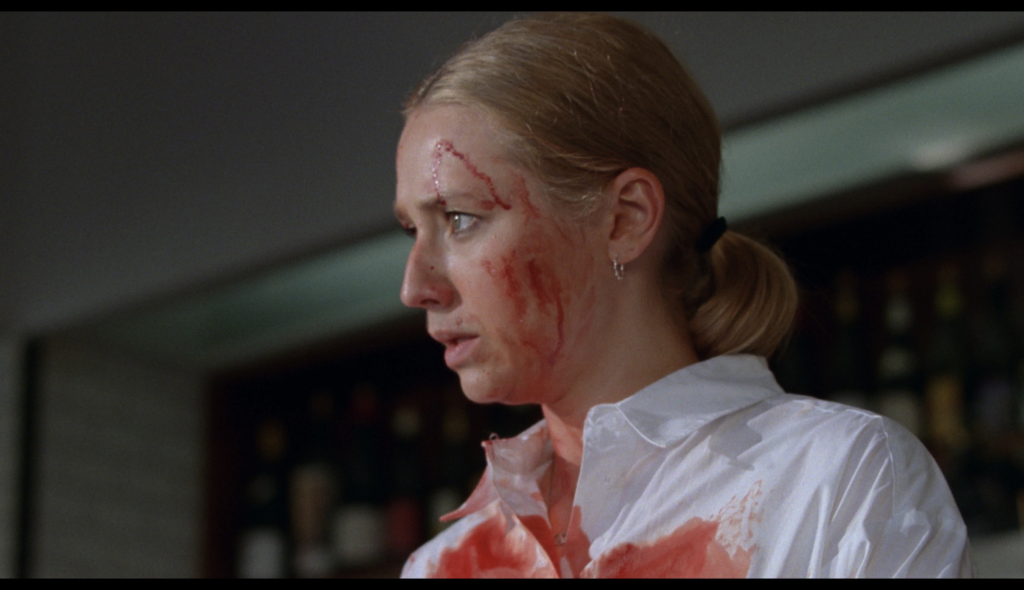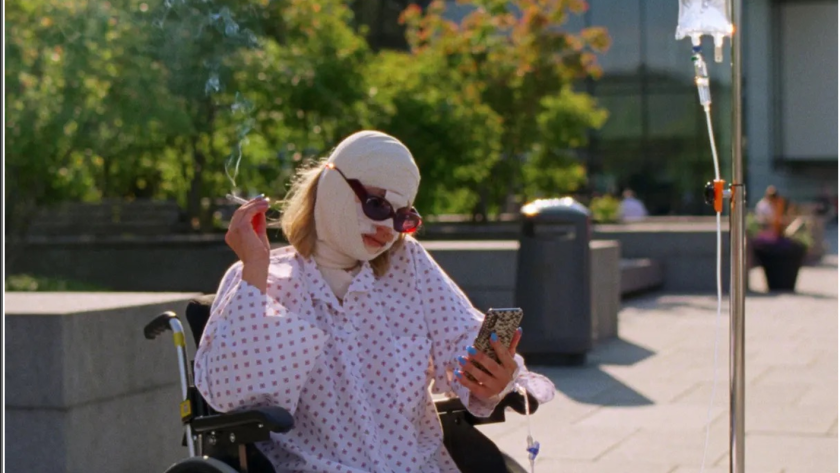Shaza Hafez explores this satirical dark comedy about the great lengths we go to in our self-centred quest to gain attention
This review contains spoilers for ‘Sick of Myself’.
At the beginning of ‘Sick of Myself’, anti-hero Signe (Kristine Kujath Thorp) is in a touchy position: her boyfriend has become more successful than her, and she feels left behind because of this. At some point in our lives, many of us have felt overshadowed by our loved ones’ success. However, due to her emotional baggage, her reactions throughout the film are quite extreme to say the least.
Her trajectory is quite typical and predictable: poor privileged snowflake Signe grows up with an absent father, and later on in life seeks to fill the void left by daddy with her toxic boyfriend Thomas. But of course, the results are just as formulaic, with Thomas being a narcissistic kleptomaniac who cannot fix her issues or save her. Throughout the film, she desperately fights for his attention by doing, quite honestly, at a glance, stupid and childish things, reminiscent of our childhood’s ‘mommy, look at me!’ moments.
Every kid who lacks some sort of attention at home or at school has tried to gain it by faking or exaggerating injuries, and in Signe’s case, this primal instinct and need for constant attention drags on to adulthood. The main way she tries to achieve this goal throughout the film is through a form of injury she inflicts upon herself: the abuse of an illegal drug called Lidexol that causes skin deformations. It is not mentioned whether she’s suffering from extreme narcissism or belongs to the demographic of people who suffer from the rare mental health condition of Munchausen syndrome (factitious diseases imposed on the self). However, one thing is clear: Signe’s self-harm stems from her deep-rooted issues.
She gets off on the fantasy of her funeral: her loved ones weep and wail, her father is not admitted, and church bells ring as she and her boyfriend climax. His talk in bed consists of telling her he was worried about her. She desperately wants to feel cared for. Thomas convinces her to help him steal things for his artwork and she does it; his approval means the world to her. Later on she fantasizes about him being proud of her for admitting to her wrongdoings, and she cries at the very thought of it. When she’s at the hospital after her first overdose, the first thing she thinks about when she wakes up is whether or not he’s there to take care of her.

Many storytellers in Kristoffer Borgli’s generation have been reflecting on this specific moment in our culture: the millennial existential crisis. This film heavily shows today’s obsession with the self, from our star signs, to perfectly curated social media profiles, thirst traps, personality quizzes, and all the absurdities of self-marketing. Not to be old-fashioned, but it’s doubtful that we have all deemed ourselves exceptional or worthy of special personalized treatment. On TikTok, Gen-Z can no longer stand the thought of being just like everyone else, whether they differentiate themselves from others through niche “trauma” they’ve experienced or simply an outfit they believe has never been thought of in history ever before… Do they all suffer from a lack of connection? Has social media ruined the value of true connection, exacerbating the individuality complex?
This celebration of individualism is a double-edged sword. In Signe’s case, she believes the only way she can receive this special treatment (or to an extent — love) is by becoming the victim of a great tragedy. Have we pushed the individualist Hollywood main character narrative to such an extent that we now believe only special people deserve great things? Borgli makes this point in true absurdist comedy fashion: when she starts modeling for an agency that hires models who don’t conform to traditional beauty standards, they fire her because her new appearance was too non conforming due to her drug habits.
On the other hand, Signe is also quite clearly a victim of her mental state in this situation and in many other situations, in fact, her actions harm herself more than anyone else. The film doesn’t shy away from showing us both sides of the argument, and encourages the viewer to have a kinder and more nuanced opinion on Signe’s character. However, we can’t help but get second hand embarrassment as she pretends to faint when her boyfriend gets asked more questions than her at a formal lunch.

‘Sick of Myself’ feels like the more sinister darker Mr. Hyde to the ‘Worst Person In the World’ ’s Dr. Jekyll: is the rise of these self-destructive and aimless heroines necessary in our culture at this stage? Is it a way to rebel against the way we are all constantly bombarded with self-help but also self-love culture? Have we improved ourselves to the point of existential nausea? After all, these flawed characters would not have acquired this new-found success if they weren’t relatable, and if we didn’t identify elements of their narratives in our own lives. The movie ends with Signe in a treatment facility, frolicking away in nature with the other patients. The opposite of individualism: functioning as part of a whole. Is it the cure Borgli suggests?




